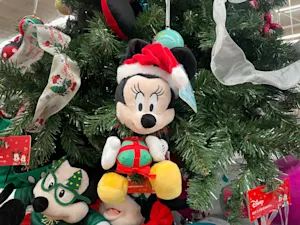
Ukrainian Refugee Killed in Brutal Charlotte Train Attack
In the quiet city of Charlotte, North Carolina, a tragic event unfolded on August 22, 2025, that shook the community and raised pressing questions about mental health, public safety, and justice. Iryna Zarutska, a 23-year-old Ukrainian refugee seeking a new life far from the turmoil of war, was fatally stabbed aboard a light rail train just minutes after she boarded. The suspect, Decarlos Brown Jr., now faces serious charges, including first-degree murder at the state level and a federal count for committing an act causing death on a mass transit system. However, Brown has not yet entered a plea. Beyond the legal proceedings lies a complex story of a man's troubled mind and a young woman's hopeful journey cut tragically short.
A Fatal Encounter on Charlotte's Light Rail
Iryna Zarutska had recently fled the violence of Ukraine, arriving in the United States in 2022 with dreams of building a better life. She was described by family and friends as a bright, artistic soul who cared deeply for those around her. Zarutska worked at a local pizzeria and was taking English classes at a community college, with plans to become a veterinary assistant. On that fateful August evening, she boarded the Blue Line light rail, dressed in her work uniform, unaware that her life was about to be violently interrupted.
Minutes after she took a seat, Decarlos Brown Jr., a 34-year-old man with a lengthy criminal record and a history of mental illness, pulled out a knife and stabbed her multiple times in the throat. The attack was swift and brutal, leaving Zarutska dead on the train as fellow passengers rushed to her aid. Brown then exited the train at the next stop, bloodied and seemingly detached from the gravity of his actions.
The Man Behind the Attack: Troubled Mind or Calculated Crime?
Decarlos Brown Jr.'s background paints a picture of a man wrestling with serious mental health challenges. Diagnosed with schizophrenia, Brown reportedly believed that "materials" had been implanted in his brain, controlling his actions and thoughts, as reported by PEOPLE. From jail, he told his sister that he "hurt my hand, stabbing her," and insisted he did not know Zarutska, claiming that these mysterious "materials" caused him to lash out.
His sister described him as not being in his right mind and dangerous to society, a sentiment echoed by his mother, who revealed that Brown had refused to take prescribed medication. Court documents also show that earlier in the year, Brown called 911 to report that he believed someone had given him "man-made" material that controlled when he ate, walked, and talked, as reported by CNN. Despite these alarming signs, Brown was released on a conditional promise to appear at his next hearing; a decision that has since drawn criticism.
Legal Implications: State and Federal Charges
Brown's case is notable not only for its tragic nature but also for the legal complexities it presents. At the state level, he faces first-degree murder charges, a serious accusation that carries the possibility of life imprisonment or even the death penalty in North Carolina. Additionally, federal prosecutors have charged him with committing an act causing death on a mass transportation system, a rare and severe federal offense that could also lead to capital punishment.
This dual charging underscores the gravity of the crime and the federal government's interest in ensuring safety on public transit systems. The Charlotte Area Transit System confirmed there was no security on board the train at the time, highlighting concerns about passenger safety and the need for increased security measures.
A Stark Contrast: Victim and Accused
The story of Iryna Zarutska and Decarlos Brown Jr. is a study in contrasts. Zarutska, a young woman who escaped the horrors of war, sought peace and opportunity in a new country. She was described as the "glue" of her family, a comforter and confidant who dreamed of a future filled with hope and purpose, as reported by ABC News. Her life was marked by resilience and kindness, from caring for neighbors' pets to pursuing education and work.
Brown, on the other hand, was a man burdened by a troubled past and untreated mental illness. His criminal record includes convictions for armed robbery, larceny, and breaking and entering, and his family's accounts reveal a man who struggled to hold down a job or maintain relationships. His mental health issues, including hallucinations and paranoia, paint a picture of a person who may have been failed by both the criminal justice and healthcare systems.
The Community's Response and the Call for Change
The aftermath of Zarutska's death has sparked outrage and grief in Charlotte and beyond. Her family, still mourning the loss, has called for action to prevent such tragedies from happening again. The community's response has been one of support and solidarity, with many recognizing the need for better mental health care and stronger safety protocols on public transportation.
Local leaders, including Charlotte's mayor, have acknowledged systemic failures that allowed Brown to remain free despite his history. The incident has also become a focal point in national debates about crime, mental health, and public safety, with political figures using the case to advocate for law and order policies. President Donald Trump, in a post on his Truth Social platform, called for Brown to be awarded the death penalty and labeled him a "career criminal," as reported by CNN, reflecting the case's national political resonance.
What You Should Know About Transit Safety and Mental Health
This tragic event serves as a stark reminder of the challenges facing public transit systems and mental health services. While the legal system moves forward with Brown's prosecution, questions linger about how individuals with severe mental illness are supported — or neglected — in the community.
This story may raise concerns about safety in everyday spaces like trains and buses. It also highlights the importance of mental health awareness and the need for compassionate, effective interventions that can prevent violence before it occurs.
It is important to note that Brown's stated motive for the attack — that he believed Zarutska was "reading his mind," according to CNN — comes from his own and his family's accounts and has not been confirmed by police investigations.
A Life Lost, a Community Changed
Iryna Zarutska's life was full of promise and hope, a testament to the resilience of those who seek refuge and a better future. Her death aboard a Charlotte light rail train is a heartbreaking loss that reverberates far beyond the city limits.
Decarlos Brown Jr.'s actions and mental state complicate the narrative, challenging us to consider the intersections of crime, mental illness, and justice. As the legal process unfolds, with Brown's next court appearance scheduled for September 19, 2025, the community's call for change grows louder, urging improvements in public safety and mental health care.
References: N.C. Train Stabbing Suspect Speaks Out in Jail About Alleged Crime: Report | Uncle of Charlotte stabbing victim speaks out | Iryna Zarutska: How the fatal stabbing of a Ukrainian refugee in Charlotte unfolded | Light rail stabbing: Graphic video shows moments before, after woman killed in Charlotte























